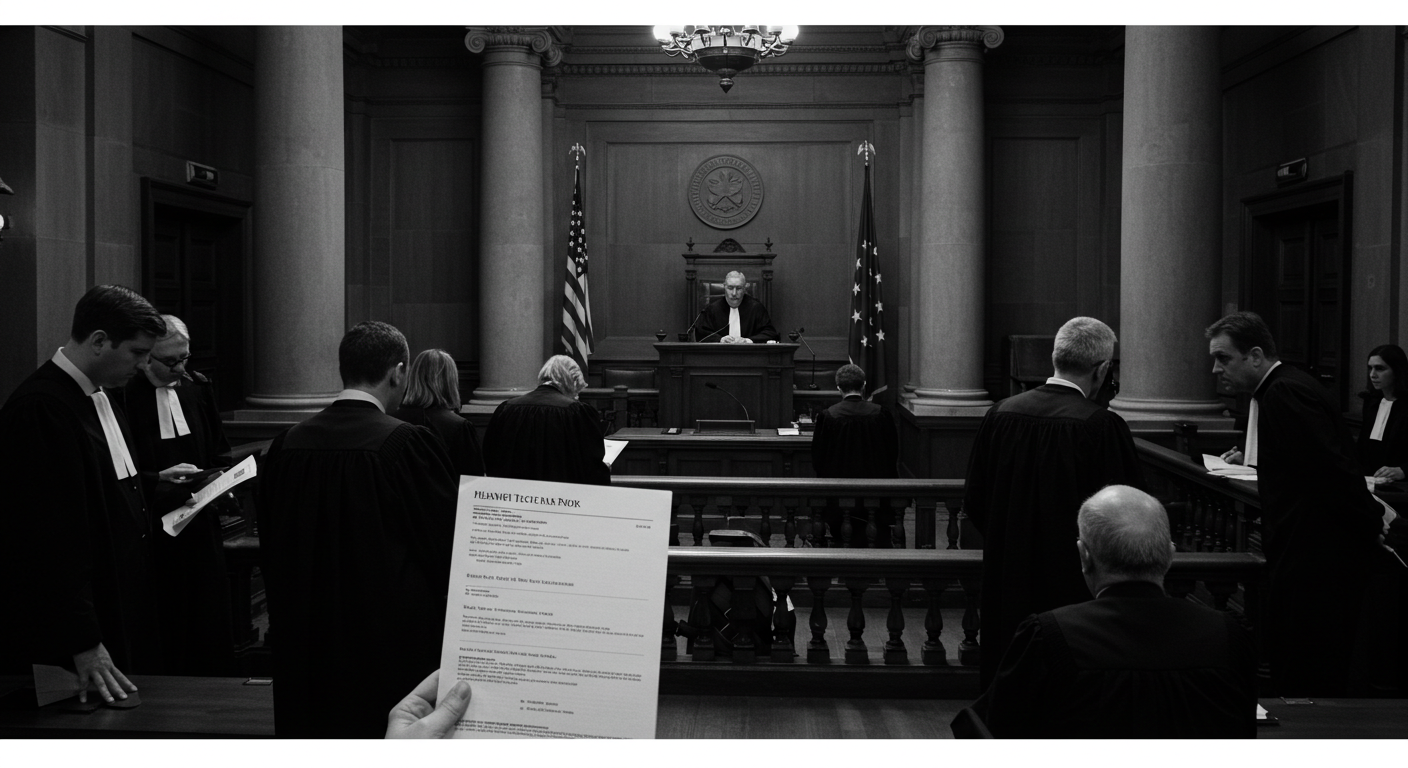Tech Giants Under Fire: EU Court Tackles Antitrust Issues
The European Union has taken aggressive stances against tech giants regarding antitrust violations, shaping the way these colossal organizations operate in the digital marketplace. As the tech landscape evolves, so does the scrutiny these companies face, with heavyweights like Google, Apple, Amazon, and Facebook (now Meta) frequently at the center of attention. This article explores the fundamental aspects of antitrust issues involving these tech giants, the legal context in Europe, and the implications of ongoing regulatory actions.
Understanding Antitrust in the Tech Industry
Antitrust laws are designed to promote competition and prevent monopolistic behaviors in the market. In the tech sector, where a few players often dominate entire industries, these laws are crucial for protecting consumers and smaller businesses. The European Commission (EC) has been at the forefront of applying and enforcing these laws rigorously, distinguishing itself from regulatory approaches in other global regions, mainly the United States.
The primary goal of antitrust legislation is to maintain a competitive marketplace, ensuring that no single entity can manipulate market conditions to eliminate rivals or obscure consumer choices. This is particularly vital in the tech industry, where rapid innovation and market disruptions often hinge on the actions of a few dominant firms.
Recent High-Profile Case: Google
In 2018, the EU imposed a record €4.34 billion ($5 billion) fine on Google for abusing its dominant position with Android, which powers a vast majority of smartphones worldwide. The Commission argued that Google had forced manufacturers to pre-install its search engine and browser, thereby stifling competition. Critics of the ruling emphasized that the fine could stifle innovation within Google, yet proponents argued that this step was essential for maintaining a competitive marketplace.
Following this, Google has actively sought to appeal the ruling and revise its practices to align with European regulations. This situation exemplifies the ongoing tug-of-war between tech giants and regulatory bodies, where companies strive to innovate while adhering to increasingly stringent regulations.
Apple and the App Store Controversy
Apple encounters profound scrutiny from the EU, particularly regarding its App Store practices that have been deemed anti-competitive. Developers claim that Apple’s requirement to use its in-app purchasing system, which takes a 30% commission, restricts their market capabilities. The European Commission’s investigation into these conditions has opened a dialogue about the monopoly Apple exerts over its ecosystem.
In 2021, the EC announced formal antitrust charges against Apple, signaling a significant shift in how the company may be forced to revise its App Store policies. This move is aimed not only at apple but also signals to other tech firms that the EU’s commitment to curbing monopolistic practices is staunch and unwavering.
Amazon’s Antitrust Dilemma
Amazon also finds itself in the crosshairs of European regulators. The EC has been investigating Amazon for potential antitrust issues related to its dual role as a marketplace and a competing retailer. By using data from third-party sellers to gain competitive advantages, Amazon risks creating an unfair marketplace that undermines its partners.
In November 2020, the Commission proposed new regulations to bolster scrutiny over platforms like Amazon, designed to ensure that they maintain fair practices in the face of competition. This regulatory push is indicative of a growing trend in the EU to level the playing field and prevent any single entity from monopolizing market dynamics.
Meta’s Privacy and Competition Concerns
The dramatic shifts in competition laws have also highlighted the situation surrounding Facebook, now branded as Meta. The EC has raised concerns about how Facebook’s ownership of Instagram and WhatsApp may stifle competition among social media platforms. Additionally, the intertwined issues of privacy—exemplified by the Cambridge Analytica scandal—have intensified scrutiny over Meta’s practices relating to consumer data and advertising.
The EU’s General Data Protection Regulation (GDPR) set a precedent for rigorous data protection in response to the mishandling of personal information. Meta’s struggle to comply with these regulations leads to significant fines and potential operational adjustments, reflecting the broader trend toward enhancing consumer rights in digital spaces.
Impact on Innovation and Consumer Choice
While many tech giants argue that these regulatory measures could stifle innovation, the EU believes in advocating for fair competition to foster a healthier tech ecosystem. The balance between maintaining market power and encouraging diverse innovation-focused entities is a crucial topic of discussion.
Critics of the EU’s approach often state that overly stringent regulations may deter investments in technology and innovations. However, proponents assert that fostering competition will ultimately lead to a better experience for consumers and smaller companies, encouraging diversity in the digital marketplace.
Future Regulatory Landscape
As the EU continues to refine its approach to antitrust issues, several key areas will likely see increased regulatory scrutiny. These include data privacy, market dominance in digital services, and the behavior of large platforms that could undermine competition. Innovations such as artificial intelligence and blockchain technology may also require specific regulatory frameworks designed to ensure they develop within a competitive environment rather than in the shadow of monopolistic practices.
Furthermore, the EU’s Digital Markets Act and Digital Services Act aim to address these challenges directly, classifying certain platforms as “gatekeepers” and imposing special obligations to protect fair competition. These developments signal a proactive regulatory environment aiming to adapt to the rapidly changing digital landscape.
International Implications
The EU’s rigorous antitrust measures may influence global standards. As other regions observe the outcomes of these regulatory actions, there might be a ripple effect leading to worldwide changes in how tech giants operate. Companies may need to adopt more transparent practices to avoid penalties, shaping a cultural shift across borders regarding digital economy regulations.
Conclusion
The ongoing scrutiny of tech giants by the EU underscores the delicate balance between enabling innovation and preventing monopolistic behavior. Each ruling, investigation, or regulatory proposal sends ripples through the tech world, impacting not just the companies involved but also the broader market dynamics and consumer choices. As the EU continues to tackle antitrust issues, the outcome of these engagements promises to shape the future of the digital economy for years to come.




